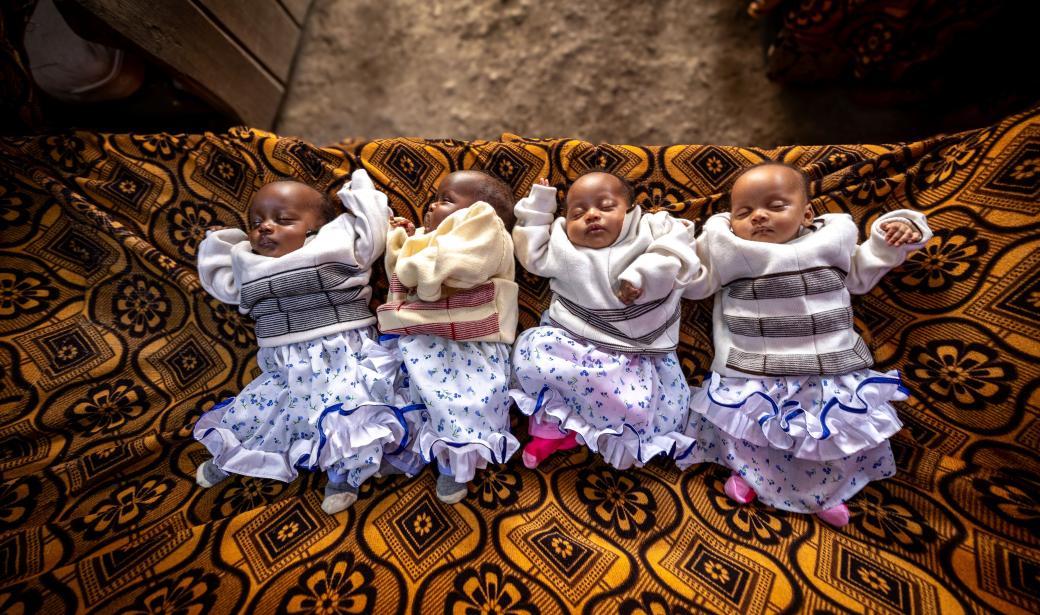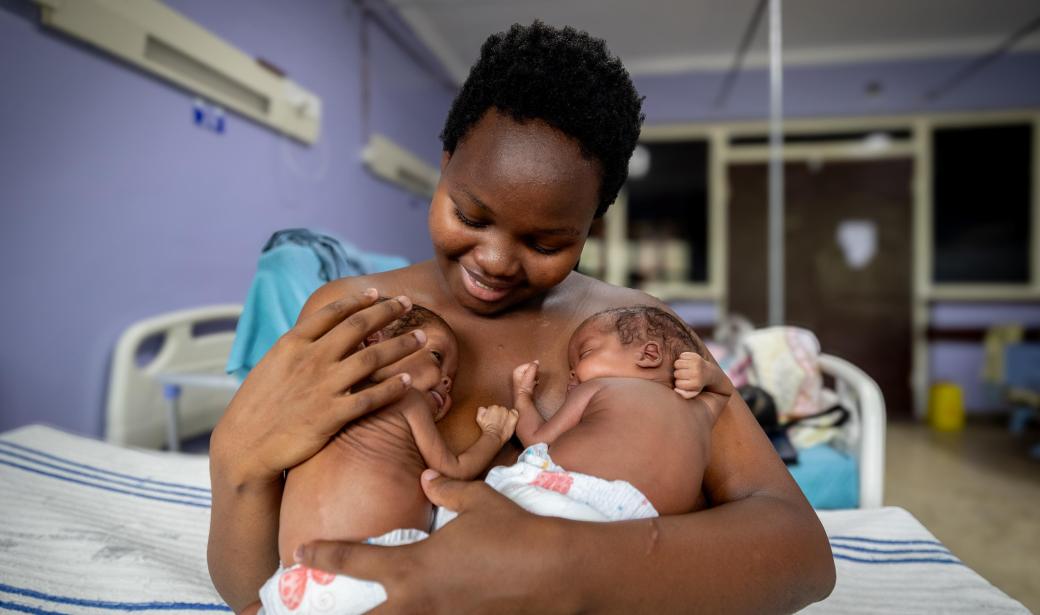Nairobi ‒ Kenya has made remarkable progress in promoting breastfeeding. Between 2003 and 2022, exclusive breastfeeding in the first 6 months increased from 13% to 60%, surpassing World Health Assembly’s target of at least 50% by 2025, and exceeding the 2023 global average of 48%.
This progress is the result of sustained investment in a comprehensive package of maternal, infant and young child interventions. These include breastfeeding counselling at health facilities, implementation of World Health Organization (WHO)’s Baby-Friendly Hospital Initiative, a baby-friendly community initiative and the enforcement of the Breast Milk Substitutes (Regulation and Control) Act, 2012.
Despite these efforts, exclusive breastfeeding rates have remained at 60% since 2014.
To reignite progress, the Ministry of Health is currently adapting WHO’s Baby-Friendly Hospital Initiative guidelines to the Kenyan context and developing a training package for health workers. The initiative, a joint effort by WHO and UNICEF, provides health facilities with a framework to promote, protect and support breastfeeding, while addressing practices which have a negative impact, such as the use of breastmilk substitutes.
In May 2024, WHO, with funding from Irish Aid, supported Kenya’s Ministry of Health to conduct a six-day Baby-Friendly Hospital Initiative training of trainers in Nakuru County, located in the southwest of the country.
“When we used to go for scans, I didn’t believe we were actually expecting quadruplets. I thought everyone was just joking with me!” says the quadruplets’ father, Jonathan Mwangi.
The babies were born prematurely and had low birth weight, so Chepkemoi stayed in the hospital until they were ready to be discharged.
During her stay, Chepkemoi was supported by health workers at the hospital to initiate and maintain breastfeeding while managing common difficulties. She was able to produce enough milk for all four babies and even had excess to store.
Now that Chepkemoi is back home, she has been able to continue breastfeeding with the support of a community health promoter who visits regularly. “The hospital always calls to see how we are,” adds Chepkemoi.
“The benefits of breastfeeding cannot be overstated. For babies, breast milk is the ultimate nutrition for growth, both physical growth and brain development. It also provides immunity against infectious and chronic diseases,” says Dr Alice Nkirote, head of the paediatrics department at Nakuru County Referral and Teaching Hospital.
Kenya is also among the first countries in the African region to legislate and offer clear guidelines on when to offer breastmilk substitutes, through the Breast Milk Substitutes (Regulation and Control) Act of 2012.
In addition, 90% of births in the country are attended by a skilled health worker, presenting huge opportunities to promote breastfeeding.
Yet, says Arthur Lord Gichuru, department head of nutrition and dietetics at Nakuru County Referral and Teaching Hospital, before the baby-friendly hospital initiative, “many nurses in this facility didn’t believe babies could survive on breastmilk alone.”
Their nomination for the training was the hospital’s response to the lack of, or delayed, breastfeeding which can cause mothers, family members or health workers to feed newborns food or liquids other than breastmilk, for example, glucose or water.
Some health workers also unnecessarily prescribed infant formula and used cups with spouts in the paediatric ward, practices which actively discourage breastfeeding.
“As a hospital we adopted this initiative to be able to promote, protect and support exclusive breastfeeding for optimal nutrition,” says Gichuru. “In terms of breast milk substitutes enforcement, we made sure that all mothers are able to be supported every morning through health talks, when they deliver and through early initiation of breastfeeding.”
“The training has really pushed us to increase the baby-friendly initiative implementation at our facility,” says Ongwae. “We are working hard to sensitize our clinical team and the non-clinical team so that we are able to offer breastfeeding support to our babies who are born here.”
These collective efforts are bearing fruit. Between August 2024 and February 2025, early initiation of breastfeeding at the hospital has increased from around 42% to 75%.
“I was told by the nurses that it’s important to only breastfeed my new baby for six months. They explained that breastfeeding will help protect my child against common illnesses like diarrhoea and pneumonia,” adds Kerubo.
The positive changes are felt among patients and staff alike. “As a nurse, I feel proud because when I see a mother smiling with her baby, it means I am smiling too,” says Ongwae.
Communication officer
WHO Kenya
Tel: +254 740 466 426
Email: printg [at] who.int (printg[at]who[dot]int)
Communications and marketing officer
Tel: + 242 06 520 65 65 (WhatsApp)
Email: boakyeagyemangc [at] who.int (boakyeagyemangc[at]who[dot]int)









